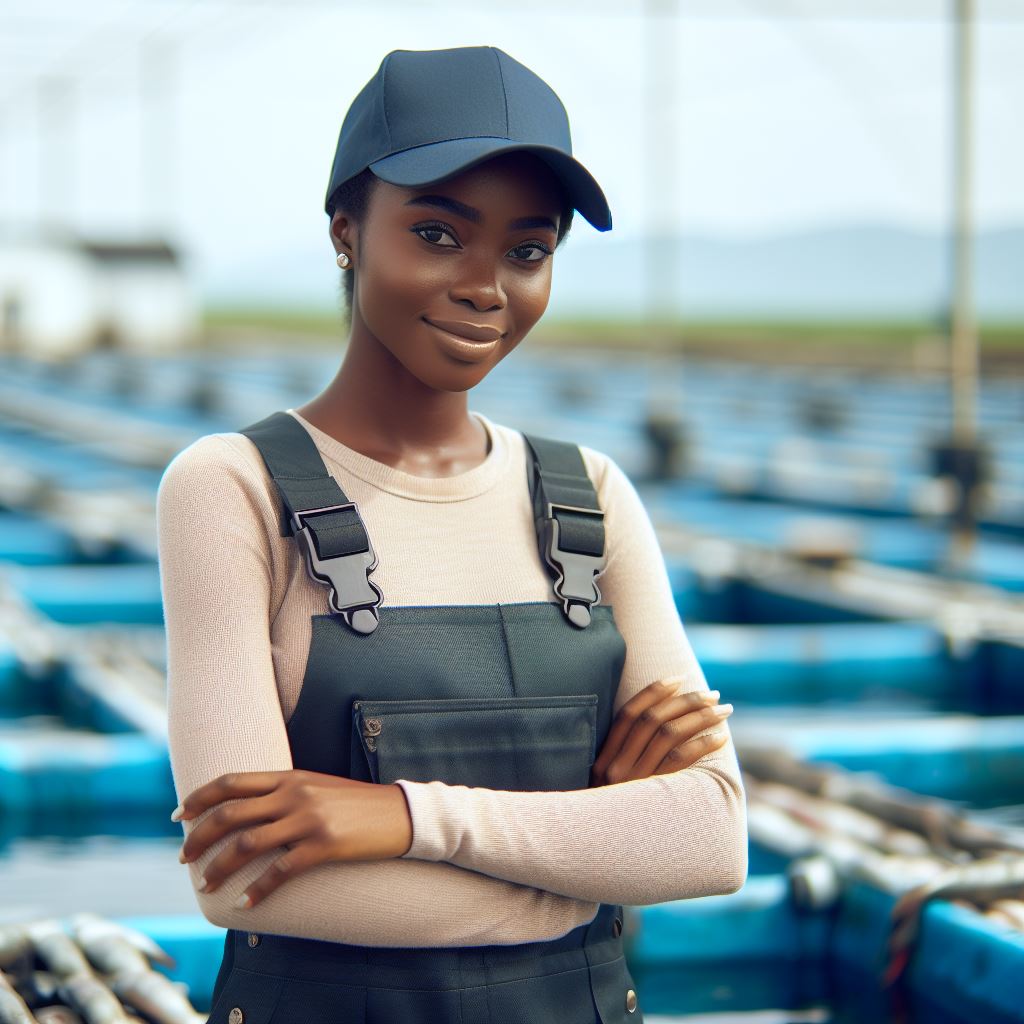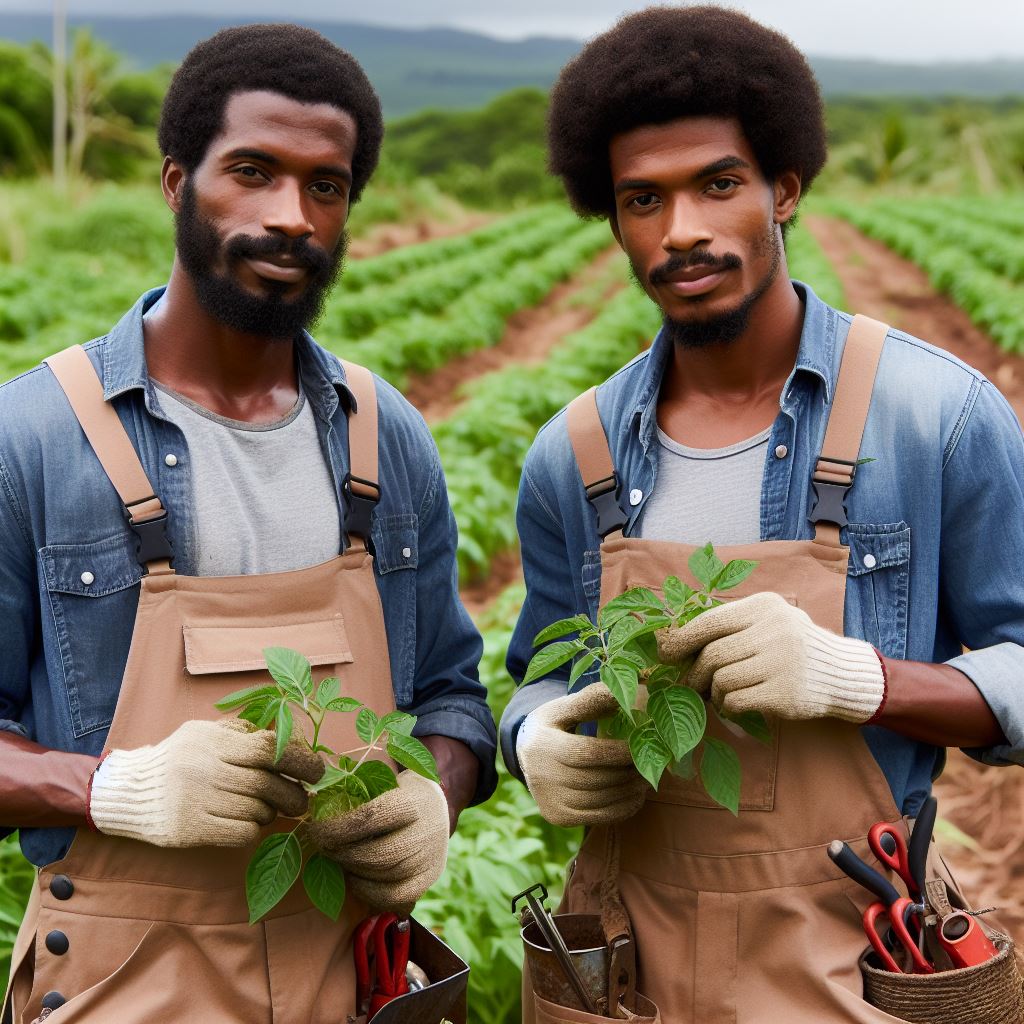Introduction
As aspiring fisheries professionals, field work and internships provide invaluable real-world experience.
Field work involves conducting research, collecting data, and monitoring fish populations in their natural habitats.
Internships allow students to gain hands-on experience by working with professionals in the field.
Real-world experience is crucial in fisheries as it provides practical skills and knowledge.
It allows individuals to apply classroom teachings in a real-world setting.
Field work and internships offer opportunities to observe and understand fish behavior in their natural environments.
They provide a chance to apply scientific methodologies in data collection and analysis.
These experiences foster a deeper appreciation and understanding of the complexities of fisheries management.
Field work and internships also allow individuals to develop teamwork and problem-solving skills.
They provide avenues for networking and building relationships with professionals in the fisheries industry.
Additionally, these experiences can lead to future job opportunities and career advancements.
In essence, field work and internships play a vital role in gaining real-world fisheries experience.
They provide opportunities to apply theoretical knowledge, develop practical skills, and foster professional relationships.
Read: Nigeria’s Stance on GM Crops and Environmental Concerns
Benefits of Field Work and Internships in Fisheries
Hands-on learning opportunities
Field work and internships provide valuable hands-on learning experiences in the fisheries industry.
By participating in these opportunities, individuals can develop practical skills in fisheries research and management.
They gain firsthand experience and learn how to navigate the complexities of working in the field.
Exposure to diverse ecosystems and species
Field work and internships offer the chance to explore diverse ecosystems and study the unique characteristics of fisheries habitats.
Participants get the opportunity to observe and learn about various fish species and their behaviors in their natural habitats.
This exposure expands their knowledge and understanding of different ecosystems and species.
Building professional networks
Field work and internships provide valuable networking opportunities in the fisheries industry.
Participants have the chance to collaborate with experts and professionals in the field, building relationships that can be beneficial for future career prospects.
These connections can lead to mentorship, job recommendations, and potential employment opportunities.
Enhancing problem-solving and decision-making abilities
Field work and internships provide individuals with real-life challenges in fisheries management.
Participants learn to address problems and find solutions in a practical setting.
They also develop critical thinking skills by making informed decisions based on field observations and data.
These experiences enhance their problem-solving and decision-making abilities, making them more effective in future fisheries-related positions.
Read: Comparing Fisheries Curriculum: Nigeria vs. Global Standards
Field Work and Internship Opportunities in Nigeria
Field work and internships provide invaluable real-world experience for individuals interested in fisheries.
In Nigeria, there are numerous opportunities available in various sectors.
Research institutions and universities
Research institutions and universities offer fantastic chances to gain practical knowledge in the field of fisheries.
Collaborating with Fisheries Departments in universities exposes interns to cutting-edge research and valuable networking opportunities.
Participating in research projects focused on fisheries management allows individuals to contribute to scientific advancements and gain hands-on skills.
Government agencies
Government agencies also offer exciting opportunities for field work and internships in Nigeria.
Joining fisheries monitoring and enforcement teams provides firsthand experience in protecting and managing fish populations.
Interns can actively contribute to the conservation efforts by monitoring and reporting illegal activities.
Assisting in policy development and implementation allows individuals to understand the policymaking process and contribute to the sustainable management of fisheries resources.
Non-profit organizations
Non-profit organizations play a crucial role in fisheries conservation and sustainable fishing programs.
Engaging in conservation initiatives allows interns to contribute to the protection of marine ecosystems.
By participating in sustainable fishing programs, individuals can actively promote responsible fishing practices and ensure the long-term viability of fish stocks.
Transform Your Career with Expert Guidance
Get personalized mentorship consulting that’s tailored to your unique path. Our expert advice is actionable and exclusive.
Get StartedConducting assessments and monitoring of fish populations helps in gathering crucial data for conservation efforts.
Private sector
The private sector also offers exciting opportunities for individuals interested in fisheries.
Working in commercial fish farms and aquaculture operations allows interns to gain insights into the business side of fisheries.
They can learn about fish breeding, feeding, and the economic aspects of fish farming.
Assisting in fish processing and quality control familiarizes individuals with the post-harvest processes, ensuring compliance with safety and quality standards.
In fact, field work and internships provide real-world experiences that are invaluable for individuals interested in fisheries.
In Nigeria, there are numerous opportunities available across research institutions, government agencies, non-profit organizations, and the private sector.
By actively participating in these opportunities, individuals can contribute to the conservation and sustainable management of fish resources while gaining practical skills and knowledge.
Read: Addressing Climate Change: The Role of Crop Protection in Nigeria

Tips for Maximizing Field Work and Internship Experience
Field work and internships provide invaluable real-world experience in the field of fisheries.
To make the most out of these opportunities, it is important to have a plan and actively engage in the learning process.
Here are some tips to maximize your field work and internship experience:
Set clear goals and expectations
Before starting your field work or internship, it is crucial to establish clear goals and expectations.
Determine what you want to achieve and what skills you want to develop during the experience.
This will help you stay focused and make the most of your time.
Seek mentorship and guidance from experienced professionals
One of the best ways to enhance your learning experience is by seeking mentorship and guidance from experienced professionals in the field.
They can provide valuable insights, advice, and support throughout your journey, helping you gain a deeper understanding of the industry.
Actively participate and ask questions during field activities
During field activities, it is important to actively participate and engage with the tasks at hand.
Take initiative, ask questions, and seek clarification whenever necessary.
This will not only demonstrate your enthusiasm and dedication but also deepen your understanding of the subject matter.
Maintain a field journal to record observations and insights
Keeping a field journal is an effective way to record your observations, insights, and experiences.
This will help you remember important details, track your progress, and enhance your critical thinking skills.
It serves as a valuable resource for future reference or research.
Reflect on the experience and identify areas of improvement
After completing each field work or internship experience, take the time to reflect on your performance and identify areas of improvement.
Reflecting allows you to analyze your strengths and weaknesses, recognize valuable lessons learned, and make adjustments for future endeavors.
Network with colleagues and professionals in the field for career development
Building a strong professional network is essential for career development.
Take advantage of the field work and internship experience to connect with colleagues and professionals in the industry.
Attend conferences, join professional organizations, and participate in networking events to expand your contacts and potential job opportunities.
In a nutshell, field work and internships offer real-world fisheries experience that is crucial for professional growth.
By setting clear goals, seeking mentorship, active participation, journaling, reflection, and networking, you can maximize your learning and set yourself up for success in the field of fisheries.
Read: Modern Trends in Nigerian Aquaculture: A University Perspective
Conclusion
Importance of Field Work and Internships in Fisheries
Field work and internships in fisheries are pivotal for budding professionals.
They offer hands-on learning, instilling practical skills that textbooks can’t convey.
Real-world exposure sharpens understanding: handling gear, analyzing data, and grasping environmental nuances.
It’s where theory meets application, shaping adeptness.
These experiences immerse individuals in the challenges and intricacies of marine ecosystems.
They foster problem-solving skills and critical thinking, vital in this dynamic field.
Encouragement to Seek Real-World Experience
To aspiring fisheries enthusiasts: actively pursue internships, apprenticeships, or volunteer opportunities. Seek hands-on involvement in the field.
Don’t limit your learning to classrooms; real-world exposure is an unparalleled teacher.
Engage with seasoned professionals, absorb their insights, and hone your craft.
Initiative is key; research organizations, NGOs, or government agencies offering experiential learning.
Your curiosity and dedication will open doors to invaluable practical knowledge.
Emphasizing Long-term Benefits of Practical Fisheries Experience
The dividends of practical fisheries experience are enduring.
It cultivates a profound understanding of ecosystem dynamics and conservation imperatives.
Employers value real-world exposure; it’s a testament to your adaptability and problem-solving acumen.
It sets you apart in a competitive job market.
This practical grounding establishes a network within the industry.
Connections forged during internships often lead to mentorship and career opportunities.
Field work and internships in fisheries aren’t mere stepping stones; they’re the bedrock of a successful career.
Embrace these opportunities, as they’ll sculpt a path of knowledge and growth.
Field work and internships in fisheries forge expertise beyond textbooks, fostering practical skills crucial for success.
Seek these experiences actively for lasting benefits and career advantages in this dynamic field.




